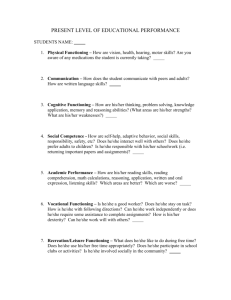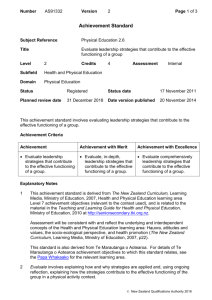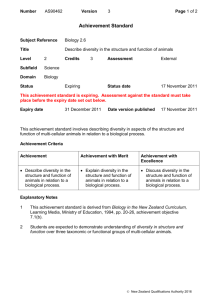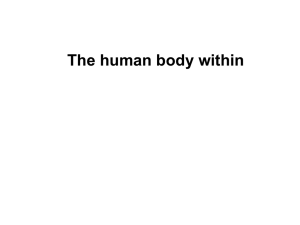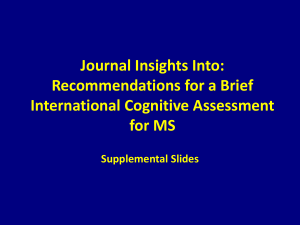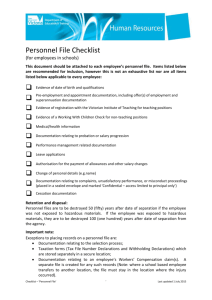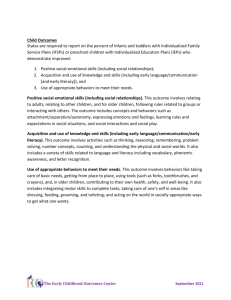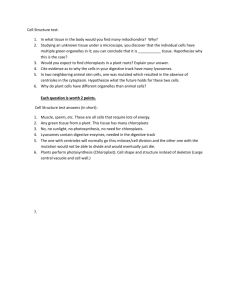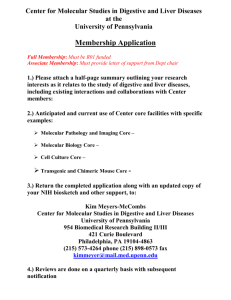49KB - NZQA
advertisement
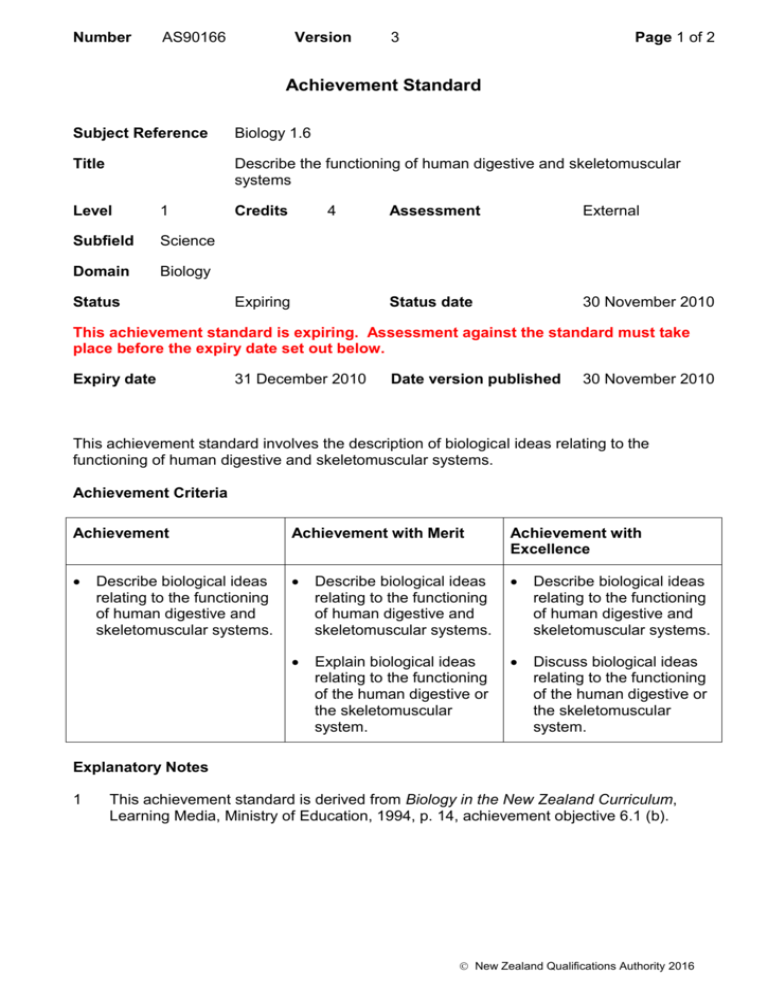
Number AS90166 Version 3 Page 1 of 2 Achievement Standard Subject Reference Biology 1.6 Title Describe the functioning of human digestive and skeletomuscular systems Level 1 Subfield Science Domain Biology Status Credits 4 Expiring Assessment External Status date 30 November 2010 This achievement standard is expiring. Assessment against the standard must take place before the expiry date set out below. Expiry date 31 December 2010 Date version published 30 November 2010 This achievement standard involves the description of biological ideas relating to the functioning of human digestive and skeletomuscular systems. Achievement Criteria Achievement Achievement with Merit Achievement with Excellence Describe biological ideas relating to the functioning of human digestive and skeletomuscular systems. Describe biological ideas relating to the functioning of human digestive and skeletomuscular systems. Explain biological ideas relating to the functioning of the human digestive or the skeletomuscular system. Discuss biological ideas relating to the functioning of the human digestive or the skeletomuscular system. Describe biological ideas relating to the functioning of human digestive and skeletomuscular systems. Explanatory Notes 1 This achievement standard is derived from Biology in the New Zealand Curriculum, Learning Media, Ministry of Education, 1994, p. 14, achievement objective 6.1 (b). New Zealand Qualifications Authority 2016 Number AS90166 Version 3 Page 2 of 2 2 Biological ideas relating to these organ systems will be selected from: the structural components of the system(s) the functioning of the components of the system(s) the processes carried out by the system(s) the role of the system in the functioning of a healthy body factors that affect the functioning of the system(s) malfunctions – causes, effects, correction. 3 Processes carried out by each system will be selected from: digestive – digestion (physical, chemical), absorption, egestion, peristalsis, transport, enzyme action skeletomuscular – tissue growth/repair, deposition, contraction and relaxation. 4 Malfunctions of organ systems will be selected from: digestive – ulcer, constipation, diarrhoea, bowel cancer skeletomuscular – breaks, strains, sprains, arthritis, osteoporosis. 5 Terms: Describe requires the student to define, give characteristics of, or an account of. Explain requires the student to provide a reason as to how or why something occurs. Discuss requires the student to show understanding by linking biological ideas. It may involve students in elaborating, applying, justifying, relating, evaluating, comparing and contrasting, analysing. Quality Assurance 1 Providers and Industry Training Organisations must be accredited by the Qualifications Authority before they can register credits from assessment against achievement standards. 2 Accredited providers and Industry Training Organisations assessing against achievement standards must engage with the moderation system that applies to those achievement standards. Accreditation and Moderation Action Plan (AMAP) reference 0226 New Zealand Qualifications Authority 2016
